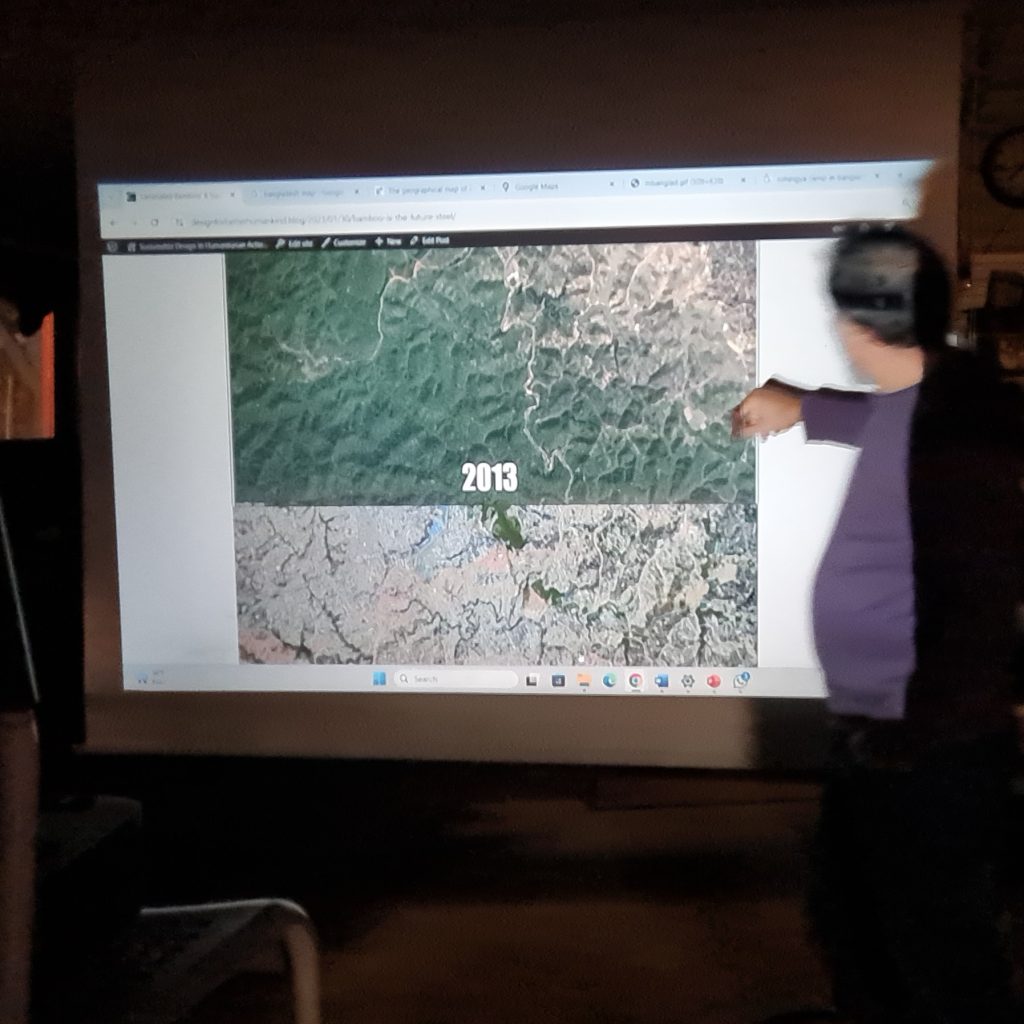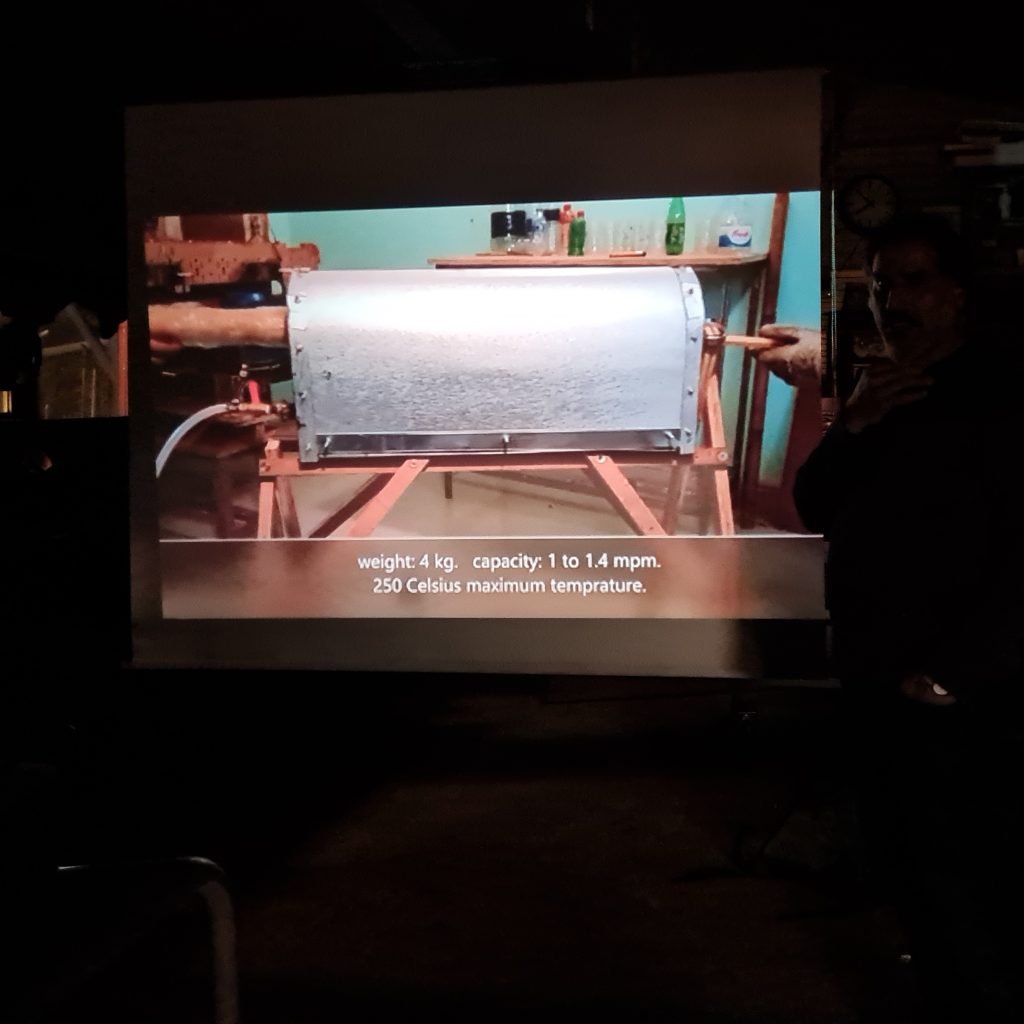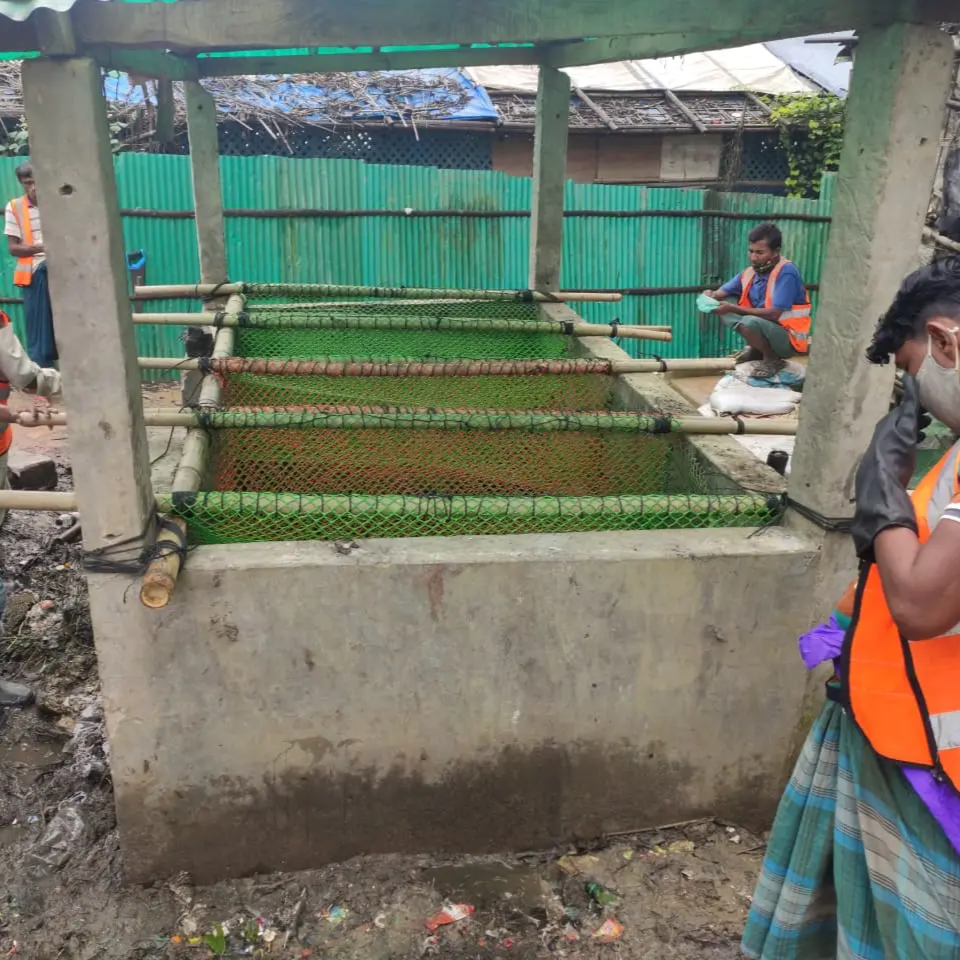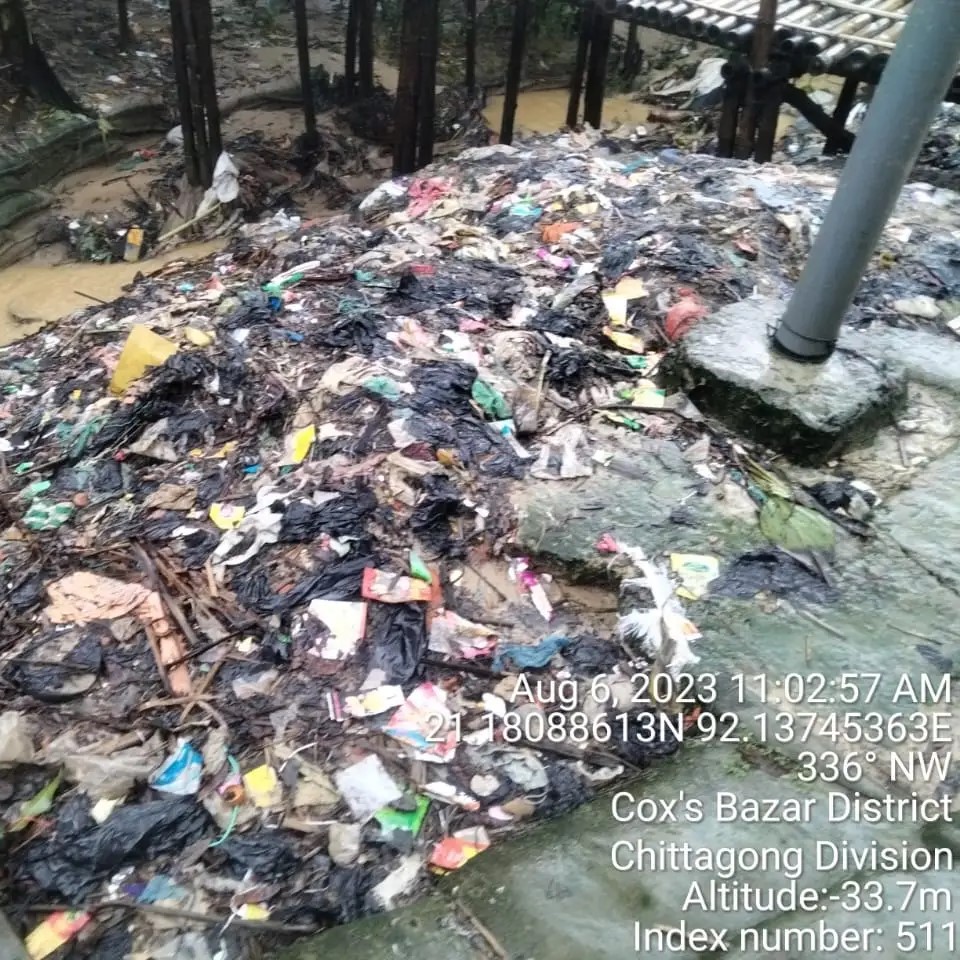On wednesday 9th of october Wissam Muases came to the Kiwanda to share about his field work in the refugee camps in Bangladesh. He told us about three projects that emerged from the problems in the Rohingya camps in Bangladesh.
He begon his presentation with explaining the sitiuation of these camps that emereged in late 2017. They are located in the south east of Bangladesh and have developed in an uninhabited area. He showed how the enviroment completely changed in just a couple of years. They are also located in the only hilly area of Bangladesh, which the established NGO’s do not have experience with.
One of the problems that are caused by the sudden emergence of the camps and the lack of knowledge of the enviroment are the flawed structures. They use a lot of bamboo to build houses that sometimes go up to 15 meters. They are also used to build retaining walls. But because the bare bamboo is exposed to the ground and open air it rots easily so a lot of buildings have to be replaced within a year. This conditions prevent the inhabitants to develop farms or other utilities.
Wissam came up with a solution to use plastic bottles to wrap around the bamboo poles. He designed an oven that shrink the bottles on the poles. It uses propane gas that is burned with an excess of oxygen to have a clean combustion. Bamboo that is treated with this process already show better resilience to the elements. They are predicted to live from 5 upto 10 years, which would be a huge improvement in sustainabillity compared to the current conditions in the camps.
Another problem Wissam encountered was the solid waste management. The current system uses concrete bins where the inhabitants deposit their trash, but these are hard to clear out and usually overflow. People use watersystems to dispose of their trash that includes both bio degradable items and plastics. To solve the problem with the overflowing waste bins Wissam designed nets that are light weight and can be easily removed and transported. This just leaves the problem of sorting the trash.
Wissam is currently looking into the waste processing plants and how to make them more efficient and more sustainable. Because of his background in art he also wants to upcycle plastic trash. He designed and is still prototyping a machine that can produce solid plastic sheets.
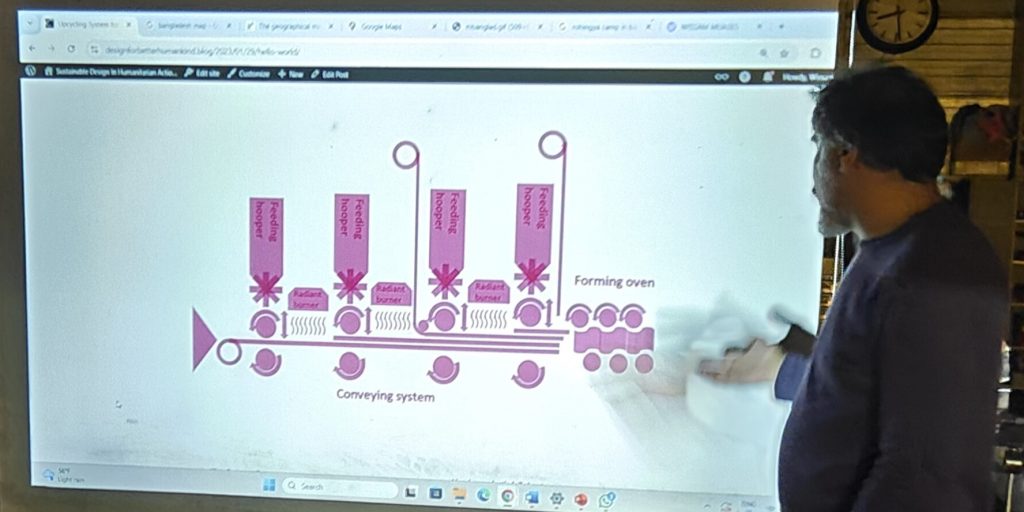
Wissam also has blogs where he writes about the progress of his projects and also collects lots of pictures taken by people from the refugee camps. It contains way more information about the topics that was discussed in the presentation. We also used these blogs as sources for this blogpost:

